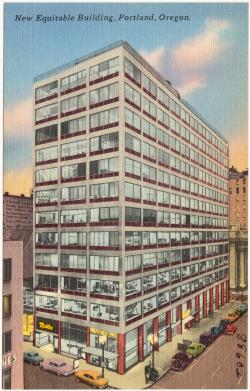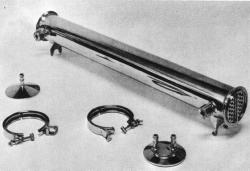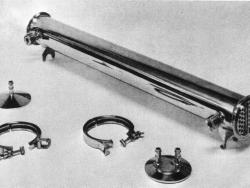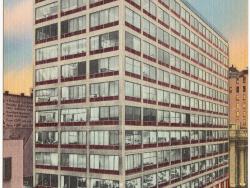The use of heat pumps for the heating and cooling of the Commonwealth Building, initiated in 1948, was a pioneering achievement in the western hemisphere. The theoretical conception of the heat pump was described in a neglected book, published in 1824 and written by a young French army officer, Sadi Carnot. Its practical application on a large scale is attributable to designers J. Donald Kroeker and Ray C. Chewning, building engineer Charles E. Graham, and architect Pietro Belluschi.
Heat

YearAdded:
Image Credit: 1940s postcard featuring the new Commonwealth (Equitable) Building in Portland, OR.Image Caption: Commonwealth Building Heat PumpEra_date_from: 1948
1980

This is the first commercial, human-blood heat exchanger. Developed in 1957, it permitted a patient's body temperature to be safely and rapidly lowered during open heart surgery to any desired and precisely controlled hypothermic level, then during the conclusion of the operation rapidly rewarmed to normal. Prior to this, hypothermic surgery required hours of preoperative, hard-to-control, external emersion cooling and postoperative rewarming.
Its design was a cooperative development between researchers at the Duke University Medical Center led by Dr. Ivan W.
YearAdded:
Image Credit: Courtesy ASMEImage Caption: A disassembly of the Blood Heat ExchangerEra_date_from: 1957
1980
Innovations

This is the first commercial, human-blood heat exchanger. Developed in 1957, it permitted a patient's body temperature to be safely and rapidly lowered during open heart surgery to any desired and precisely controlled hypothermic level, then during the conclusion of the operation rapidly rewarmed… Read More

The use of heat pumps for the heating and cooling of the Commonwealth Building, initiated in 1948, was a pioneering achievement in the western hemisphere. The theoretical conception of the heat pump was described in a neglected book, published in 1824 and written by a young French army officer,…
Read More

